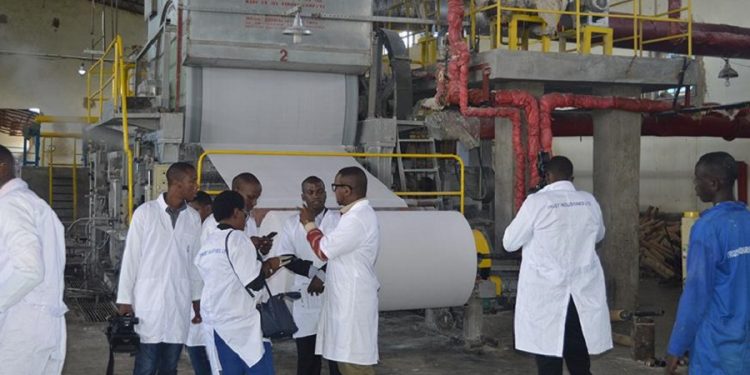The African Continental Free Trade Agreement founded the African Continental Free Trade Area (AfCFTA) in 2018 across 54 African Union (AU) nations. It aimed to form a single marketplace for trades within Africa.
The agreement was brokered and signed on the 21st of March, 2018, in Kigali, Rwanda. With 1.2 billion people participating and a combined $3 trillion GDP, the African continental free trade area is the largest in the world concerning the number of contributing members.
Some of the African Continental Free Trade Area (AfCFTA) objectives were to strengthen Africa’s economic integration through a unified marketplace, facilitate investments and transportation, and promote competitiveness amongst member nations. The body also promotes gender equality, industrial development, and establishing a liberalized market through multiple negotiations.
The agreement required member nations to remove tariffs from about 90% of goods to encourage easy access to commodities across Africa. As said by the United Nations Economic Commission for Africa, by 2022, this agreement will increase intra-African trades by over 52%. The World Bank also sees this progress generating about $76 billion income for the world market.
However, even with the deliberate efforts to increase intra-African trade rates, the statistical values remain low. In 2017, intra-African exports recorded only 16.6% in total, which is relatively low compared to 59% in Asia and 68% in Europe.
The African Continental Free Trade Area (AfCFTA) faces multiple limitations like inadequate information about processes, inadequate infrastructure, gender inequality, post-pandemic economic stress, etc. Some also fear that the significant financial gains from the diverse economies will be distributed unequally amongst member nations.
Regardless of these many limitations, there are still hopes and efforts actively made to continue pushing.
The trade bloc’s secretariat, Wamkele Mene, told the Financial times, “We plan to transform Africa into an economy that no longer exports only primary commodities to be processed elsewhere.”
He added their intention to stop using tariffs as an opportunity to generate revenues. Instead, these tariffs should be used for general economic and industrial development.”
The state of the Nigerian manufacturing sector The National Bureau of Statistics, NBS, shows that a few major industries, including the food industry, dominate Nigeria’s manufacturing sector. Beverages, tobacco, cooking oil, bread, and sugar have been some of the most manufactured products in the past few years.
This sector is responsible for about 10% of the nation’s GDP
Recently, the Nigerian manufacturing sector has shown significant growth owing to flexible policies that encourage local production. The government has been making efforts to reduce the costs of local consumer goods to promote more output of these products and other sectors.
In recent times, the Central Bank of Nigeria, CBN, also took steps to allow loans with single-digit interest rates for companies in the manufacturing and agricultural sectors. The Nigerian government has also adopted several useful initiatives and port reforms to improve the manufacturing of goods within the country.
Following these improvements, Nigeria has successfully ranked herself from 169th place in 2016 to 145th place in 2017 regarding the ease of doing business.
Some of the benefits of the manufacturing sector in the Nigerian economy include job creation, increased GDP, provision of local consumer products, improved living standards, etc.
However, the manufacturing sector in Nigeria is currently underutilizing the natural resources available for processing. About 56% of the products consumed by the large Nigerian market are imported, whereas they can be manufactured locally. Common commodities like tomato purees, health products, vehicles, and even electronic devices are from foreign countries.
It is a concern because most of the raw materials used to make these products are abundant and exported from Nigeria. Hence, the Nigerian manufacturing sector should expand on processing available raw materials instead of exporting them for processing in foreign countries.
The impact of the Nigerian manufacturing sector on the open borders
Nigeria has a significant impact on the African and world market, with almost 60% of its commodities imported from different parts of the world. However, The Nigerian open borders witness more imports than exports, which discourages local manufacturing and limits the revenue generated from the borders.
One of the primary sources of income of open borders in Nigeria is through tariffs collected from international trades. But, the African Continental Free Trade area’s policies encourage member nations to eliminate taxes on almost 90% of intra-African trades. Consequently, the value of tariffs generated for open borders will reduce by nearly 59%.
Fortunately, Nigeria is blessed abundantly with natural resources for manufacturing and exportation. With the government’s further investments in the manufacturing sector, the nation will produce goods locally and trade actively internationally.
In conclusion, the Nigerian manufacturing sector can contribute to the economy’s GDP by up to 23% and increase revenues generated from open borders via trades. Nigeria’s involvement in the AfCFTA should also encourage flexible intra-African transactions while producing adequate output for generating income. The initial contribution of the manufacturing sector summed up to about 24 billion naira. Expanding the sector, however, was supposed to increase its contribute to up to 32.5 billion naira.








